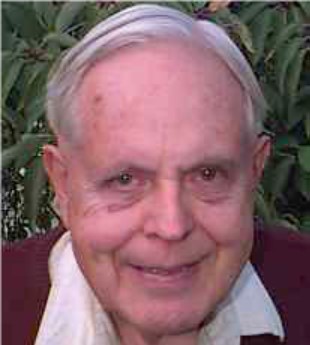<< Back to Lion homepage
Obituaries
Bruce Desmond Craven (OW1948)
7/05/1931 – 26/01/2022
 Bruce was an extraordinary and much-admired Wesley scholar who excelled in most subjects and was applauded for his musical ability. An only child growing up in Hampton, he was Draper Scholar in 1946, Walter Powell Scholar in 1947 and as winner of a Senior Government Scholarship, became Dux of the School. He studied Piano and Music theory, Physics, Pure and Applied Mathematics, Chemistry and English. In 1947, he won a Queens College Scholarship and received several First Class honours.
Bruce was an extraordinary and much-admired Wesley scholar who excelled in most subjects and was applauded for his musical ability. An only child growing up in Hampton, he was Draper Scholar in 1946, Walter Powell Scholar in 1947 and as winner of a Senior Government Scholarship, became Dux of the School. He studied Piano and Music theory, Physics, Pure and Applied Mathematics, Chemistry and English. In 1947, he won a Queens College Scholarship and received several First Class honours.
As a member of Way, the House Music competition featured him on piano, where for their free choice, they chose Bruce to play the First Movement of Beethoven’s Pathetique Sonata. The well-known visiting musician Mr. Bishop from Scotch College, recognised his real talent, describing the performance as ‘technically faultless’ and showing ‘great character and vitality.’
Beyond Wesley, Bruce attended the University of Melbourne receiving a Bachelor of Science in 1951 followed by a Master of Science (Honours) in 1953. An outstanding academic, he went on to attain a BA (Honours) in Statistics in 1959 and in 1973, still at Melbourne University, a Doctor of Science.
He worked in the Research Division of the General Electric Company in London before returning to Melbourne for seven years as a Senior Research Physicist with Australian Paper Manufacturers. He was then appointed as a senior lecturer in Mathematics at the University of Melbourne, becoming Reader in 1968 and then Principal Fellow, Department of Mathematics and Statistics.
Bruce was a renowned teacher whose main area of research was mathematical programming and optimisation. He worked with undergraduates and Honours students, and supervised theses for many leaders in mathematics today. He collaborated on optimisation with many overseas mathematicians in Vietnam (Mathematics Institute, Hanoi), China (Institute of Systems Science), India, Italy (University of Pisa) and France, and made substantial visits to universities in Sheffield, Poitiers and Seattle. Bruce was also an author of several books and papers in key journals on a great variety of interconnected fields. Bruce learnt French and German at Wesley and later taught himself Russian, enabling him to read international journals and travel and lecture overseas.
In the 1990s, the Australian Society for Operations Research (ASOR) created its top honour, the Ren Potts Medal, which is announced at its annual conference in Canberra. It honours a person for outstanding contributions to the theory or practice of operations research in Australia. Bruce was its first recipient.
Bruce’s memberships and recognition include Member of Australian Mathematical Society, Australian Statistical Society, ASOR, London Mathematical Society, Royal Statistical Society, Mathematical Programming Society, American Mathematical Society and the Operations Research Society of America.
Bruce passed away after a long illness, having spent much of his life in the family home where he grew up and attending the same local church. Interestingly, Bruce was an active member of the Research Scientists’ Christian Fellowship, which later grew into the Institute for the Study of Christianity in an Age of Science and Technology, now known as ISCAST, the oldest and largest science and religion organisation in Australia. He was editor for its Journal and co-wrote a final editorial with his fellow member, colleague and then co-editor John Pilbrow, whom he had known since 1965, in which they explain that ISCAST is committed to the idea that all truth is God’s truth and that our knowledge of the world is based on empirical evidence which, for the Christian, is all about exploring God’s world, not seeking thereby to prove that God exists.